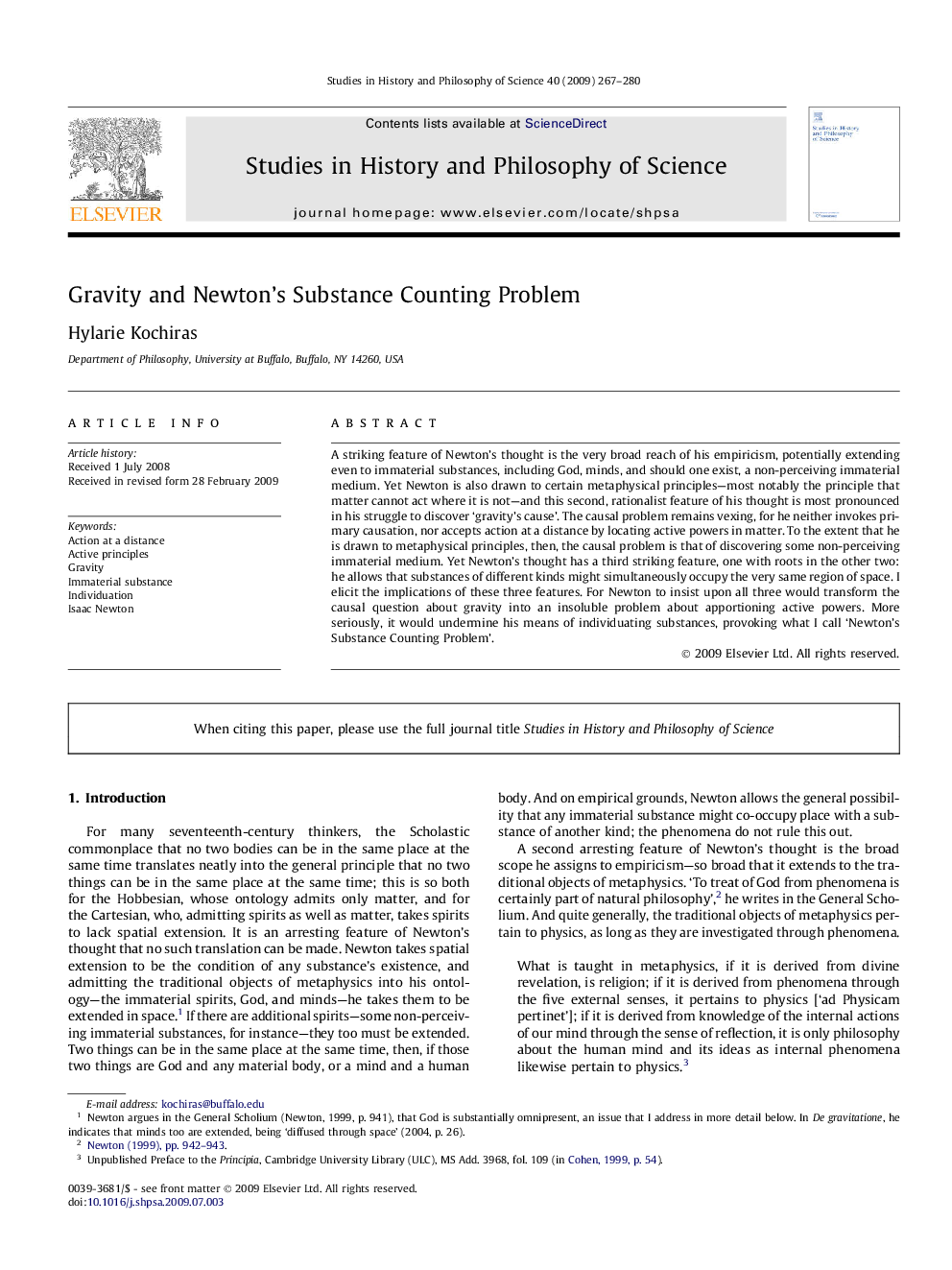| کد مقاله | کد نشریه | سال انتشار | مقاله انگلیسی | نسخه تمام متن |
|---|---|---|---|---|
| 1160737 | 1490355 | 2009 | 14 صفحه PDF | دانلود رایگان |

A striking feature of Newton’s thought is the very broad reach of his empiricism, potentially extending even to immaterial substances, including God, minds, and should one exist, a non-perceiving immaterial medium. Yet Newton is also drawn to certain metaphysical principles—most notably the principle that matter cannot act where it is not—and this second, rationalist feature of his thought is most pronounced in his struggle to discover ‘gravity’s cause’. The causal problem remains vexing, for he neither invokes primary causation, nor accepts action at a distance by locating active powers in matter. To the extent that he is drawn to metaphysical principles, then, the causal problem is that of discovering some non-perceiving immaterial medium. Yet Newton’s thought has a third striking feature, one with roots in the other two: he allows that substances of different kinds might simultaneously occupy the very same region of space. I elicit the implications of these three features. For Newton to insist upon all three would transform the causal question about gravity into an insoluble problem about apportioning active powers. More seriously, it would undermine his means of individuating substances, provoking what I call ‘Newton’s Substance Counting Problem’.
Journal: Studies in History and Philosophy of Science Part A - Volume 40, Issue 3, September 2009, Pages 267–280